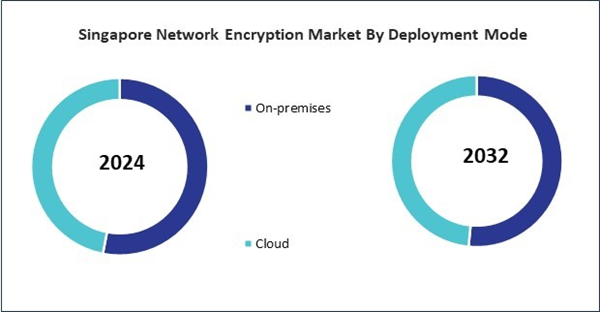The China market dominated the Asia Pacific Network Encryption Market by country in 2024, and is expected to continue to be a dominant market till 2032; thereby, achieving a market value of $681.4 million by 2032. The Japan market is showcasing a CAGR of 8.3% during 2025-2032. Additionally, the India market would register a CAGR of 9.7% during 2025-2032.
Network encryption finds application across nearly every industry, each with distinct use cases and compliance requirements. In the financial services sector, institutions like banks, insurance providers, and stock exchanges use encryption to protect sensitive customer information, online banking platforms, and real-time trading systems. Given the sensitivity of financial data, encryption protocols such as TLS are used in tandem with authentication measures like digital certificates. This not only ensures data security but also helps meet regulatory standards such as the Payment Card Industry Data Security Standard (PCI-DSS) and the Gramm-Leach-Bliley Act (GLBA).
The healthcare industry also relies heavily on network encryption. With the shift toward electronic health records (EHRs) and digital consultations, hospitals, clinics, and pharmaceutical companies must transmit medical data securely. HIPAA regulations in the U.S., for example, mandate strong encryption for patient data, especially when transmitted over the internet or mobile networks. Whether it's a physician accessing records remotely or a telemedicine platform hosting a virtual consultation, encryption ensures that confidential information remains protected from breaches and tampering.
The Asia Pacific network encryption market has experienced rapid evolution over the last decade, shaped by the region’s expansive digital growth and intensifying cybersecurity demands. Initially, encryption technologies were primarily deployed in military, government, and intelligence communications. As digitalization accelerated across sectors such as banking, telecommunications, healthcare, and e-commerce, the need to protect sensitive data in transit became paramount. Government-driven modernization programs, alongside rising cyberattack incidents, triggered the institutionalization of encryption mandates across critical infrastructure. Countries like China, India, Australia, and South Korea implemented comprehensive frameworks to enforce encryption standards across public and private networks.
List of Key Companies Profiled
- Palo Alto Networks, Inc.
- Fortinet, Inc.
- McAfee Corp.
- CrowdStrike Holdings, Inc.
- Cisco Systems, Inc.
- IBM Corporation
- Check Point Software Technologies Ltd.
- Rapid7, Inc.
- Broadcom, Inc. (Symantec Corporation)
- Kaspersky Lab
Market Report Segmentation
By Organization Size
- Large Enterprise
- Small & Medium Enterprise (SME)
By Component
- Hardware
- Solutions & Services
By Deployment Mode
- On-premises
- Cloud
By End-user Industry
- Telecom & IT
- BFSI
- Government
- Media & Entertainment
- Other End-user Industry
By Country
- China
- Japan
- India
- South Korea
- Singapore
- Malaysia
- Rest of Asia Pacific
Table of Contents
Companies Mentioned
- Palo Alto Networks, Inc.
- Fortinet, Inc.
- McAfee Corp.
- CrowdStrike Holdings, Inc.
- Cisco Systems, Inc.
- IBM Corporation
- Check Point Software Technologies Ltd.
- Rapid7, Inc.
- Broadcom, Inc. (Symantec Corporation)
- Kaspersky Lab









